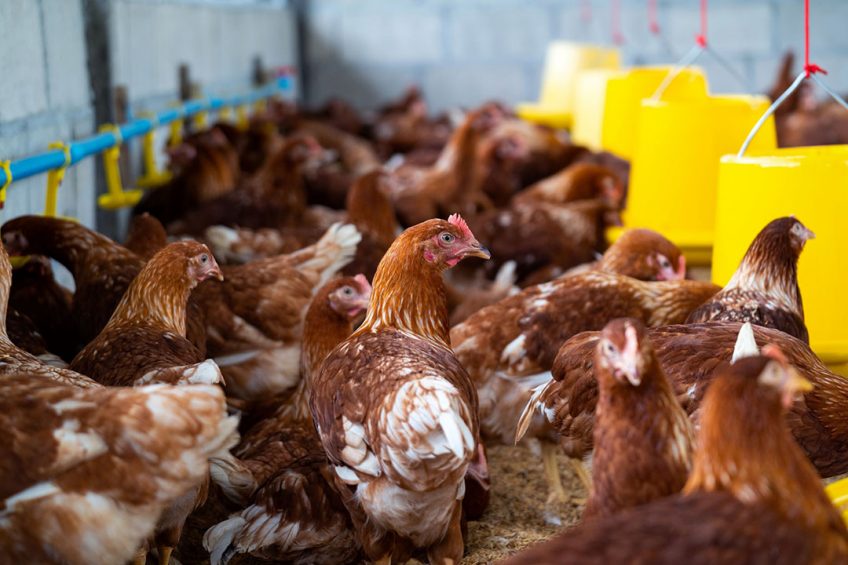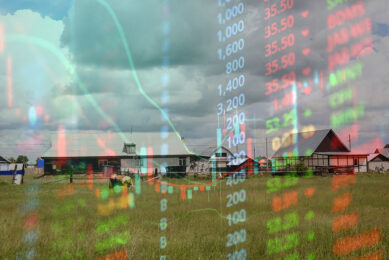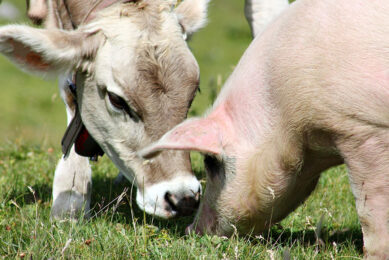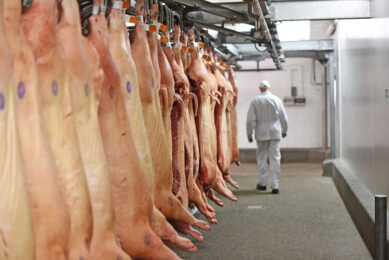Poultry dominates demand for feed in Indonesia

In Indonesia, it is anticipated that less wheat will be included in feed rations in 2020/21, while the livestock feed sector will demand more local corn.
Indonesia’s feed mill sector currently consists of 110 feed mills, 81 of which are located on the island of Java. Total installed capacity is about 29.6 mmt, an increase of 20% from 24.7 mmt in 2018. Feed mills are currently running at an average of 70% of total installed capacity.
Poultry sector consumes the most feed
The poultry industry consumes the majority (around 90%) of domestic animal feed supplies (aquaculture: 6%; cattle and swine: 4%). The Ministry of Agriculture forecasts the population of broilers will grow 8.49% per year between 2020 and 2024 and estimates 2021 broiler population to reach 3.4 billion heads, translating into a meat production figure forecast to reach 3.97 mmt.
To meet this demand, feed mills are expected to produce a total of 18.7 mmt of poultry complete feed, while poultry farmers are estimated to produce a total of 1.1 mmt of home-mixed feed.
An increase in aquafeed production
Aquafeed production is also expected to increase in 2021 to 1.722 mmt from an initial estimate of 1.68 mmt.
More corn in feed
The use of corn in feed formulation in 2021 is expected to increase to 45% compared to 43% in 2020 (corn usage was 50-60% prior to import restrictions on corn for feed use). The gap will still be filled with wheat and other local feed ingredients.
Corn used for feed in 2020/21 is expected to be 8.9 mmt. An improving economy and a rebound in poultry meat consumption is forecast to increase corn consumption for feed to 9.1 mmt in 2021/22.
Sourcing corn locally
The soaring prices of corn, wheat, and other imported feed ingredients on the international market, as well as the government’s pressure to absorb local production, has encouraged feed mills to use more local corn as the primary energy source in feed.
The Ministry of Agriculture reported that during the period of January to May 2021, feed mills procured a total of 2.8 mmt of corn, an increase of 12% from 2.5 mmt procured during the same period in 2020.
Feed mills forced to diversify feed ingredients
Although corn currently constitutes around 40-45% of feed formulations in Indonesia, feed mills are often forced to source other feed ingredients to meet energy demand in feed rations. These reasons include:
- A high demand for local corn has significantly increased local corn prices.
- Import restrictions on corn for feed use.
- The seasonality of domestic corn supplies.
- Limited drying and storage facilities.
The higher prices of corn have also led the feed millers association to request the Indonesian government to import wheat for feed rations.
Wheat for feed use
Indonesian feed mills rely on imported feed ingredients for approximately 30-36% of feed rations. Major imported feed ingredients include soybean meal, meat and bone meal, distillers dried grains and soluble, and other corn-derived products. As an alternative to fulfil the need for corn raw materials for animal feed, about 10-30% substitution can be made with feed wheat. Indonesia does not produce wheat domestically and is therefore reliant on imports to fulfil demand as a feed ingredient. In May, the Indonesian government authorised a state-owned company to import 240,000 mt of wheat for feed from Australia, which is expected to arrive by November.
To achieve the same nutritional value as corn, including feed wheat into feed formulation requires feed mills to increase other more costly imported feed ingredients. This is a reason that demand for wheat in the feed sector is expected to decline.
Wheat consumption for feed in 2020/21 is forecast at 1.3 mmt, and 1.5 mmt in 2021/22 based on comparatively high prices of local corn and increased feed production.
This information has been extracted from a USDA GAINS report.












